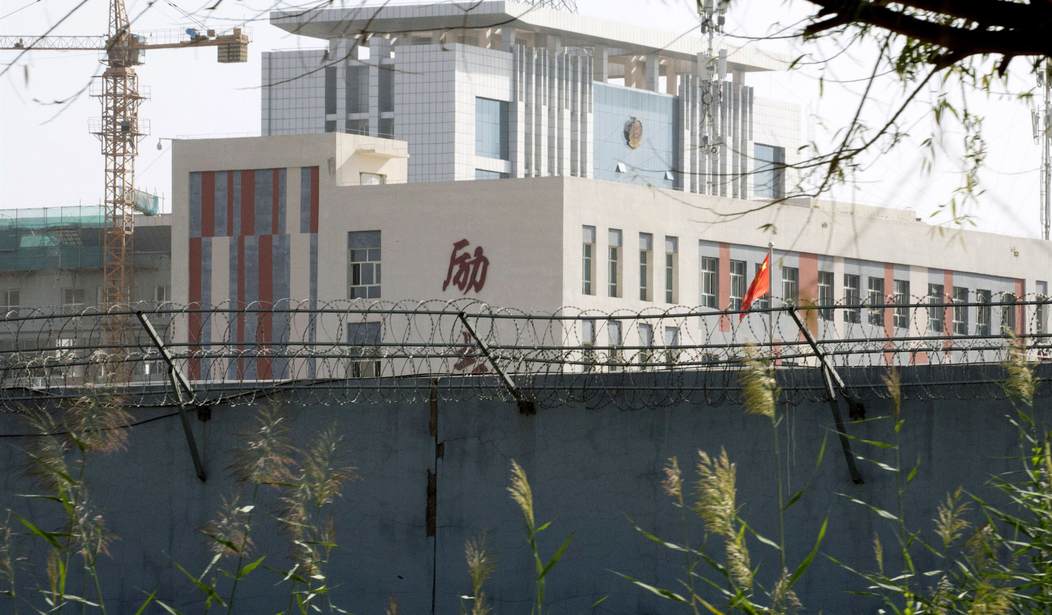Earlier this month the UN released a report concluding that China was violating human rights in Xinjiang. When I wrote about the report I mentioned that there had been a battle behind the scenes between those who wanted to report released and China itself which used its influence to try to prevent the report’s publication. Here’s what the Associated Press said about it at the time.
Outgoing rights chief [Michelle] Bachelet said she had to resist pressure both to publish and not publish. She had announced in June that the report would be released by end of her four-year term on Aug. 31, triggering a swell in back-channel campaigns — including letters from civil society, civilians and governments on both sides of the issue.
So the story was that the UN Human Rights Chief had resisted the pressure. But according to a Financial Times story published yesterday, it was the UN human rights chief herself who was against publishing the report out of a desire to avoid alienating China.
It was 12 minutes to midnight in Geneva on the last day of UN human rights chief Michelle Bachelet’s tenure, when her office released a landmark report concluding that the Chinese government had committed “serious human rights violations” in Xinjiang…
But human rights experts and activists who engaged with the Office of the High Commissioner for Human Rights said its working-level staff had to overcome resistance to publishing the report from Bachelet herself. The high commissioner did not want to alienate China, believing engagement was more likely to improve conditions in Xinjiang, the experts said.
Bachelet, a former Chilean president, was under pressure to block publication of the report from Beijing, which has denounced its conclusions as “disinformation and lies fabricated by anti-China forces”.
“The office staff were the ones trying to get [the report] out despite all the barriers. Without them, it would not have been released. Bachelet was the gatekeeper, delaying it,” said Rushan Abbas of the Campaign for Uyghurs, who gave evidence to the UN on her sister’s disappearance.
The report was almost complete back in the spring of this year but Bachelet put it on hold when China finally agreed to let her travel to the country, including a visit to Xinjiang. But there was no freedom of movement during her visit and it didn’t change anything. It did delay the report and give China another opportunity to hector Bachelet not to release it. Fortunately her own staff was able to convince her not to give in to the pressure, albeit on the last possible day she could have published it.
There’s a new report from Human Rights Watch today noting that China has released official figures showing the number of prisoners in Xinjiang is much higher than it previously admitted.
The Chinese government has used its justice system to sentence and imprison an estimated half-million people during the brutal crackdown in Xinjiang, Human Rights Watch said today.
While not all convicted prisoners faced political charges, the available figures indicate that the total number of people wrongfully imprisoned in the Xinjiang Uyghur Autonomous Region is much higher than generally reported based on earlier official figures. These formal prosecutions, in which many people received punishments without being tried, are distinct from the arbitrary detentions in the extralegal “political education” facilities. Concerned countries should press the Chinese government to release all Uyghurs and other Turkic minorities who are wrongfully detained in Xinjiang and elsewhere.
“The Chinese government may have hoped that formally prosecuting people in Xinjiang would avoid the limelight of mass detentions in extralegal political education camps,” said Maya Wang, senior China researcher at Human Rights Watch. “But many of these convictions just add to the crimes against humanity of wrongful imprisonment against Uyghurs and other Turkic people.”
German news outlet Deutsche Welle published a story back in June 2020 describing how residents of the reeducation camps were offered a list of crimes they could choose to plead guilty to. They were warned that failing to choose one just meant they were not fit for release.
…among the many months spent locked up, some former detainees report that one day was different: The day when they were forced to pick one or several infractions from a list they were handed. In essence, the detainees had to retroactively choose the crimes for which they had been imprisoned, often for months, in most cases without being told why they had been detained in the first place.
After picking a crime from the list came a sham trial, in which the detainees had no legal representation and were convicted without evidence or due process of any kind…
All four recalled the day they were handed a piece of paper detailing more than 70 acts and forced to choose one or several of them. Some of the acts were seemingly innocuous, such as traveling or contacting people abroad. But most of them were religious acts, such as praying or wearing a headscarf…
“They threatened us: ‘if you don’t pick anything, that means you did not confess your crime. If you don’t confess, you will stay here forever.’ That’s why we picked one crime,” one female detainee who was imprisoned in March 2018 told DW.
That’s all that’s going on here. China can’t justify the reeducation camps but it can claim that the same people were arrested and pleaded guilty to crimes. The fact that they held those people hostage under terrible conditions to get those confessions of guilt is just something they expect us to ignore.








Join the conversation as a VIP Member